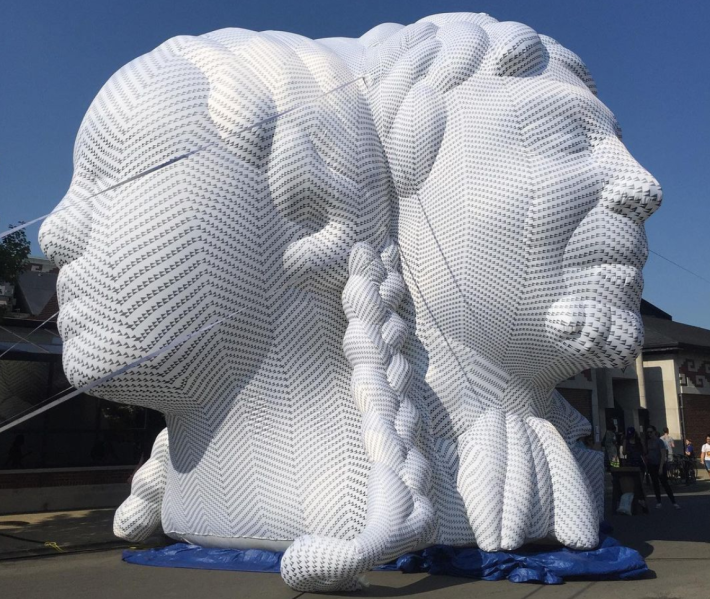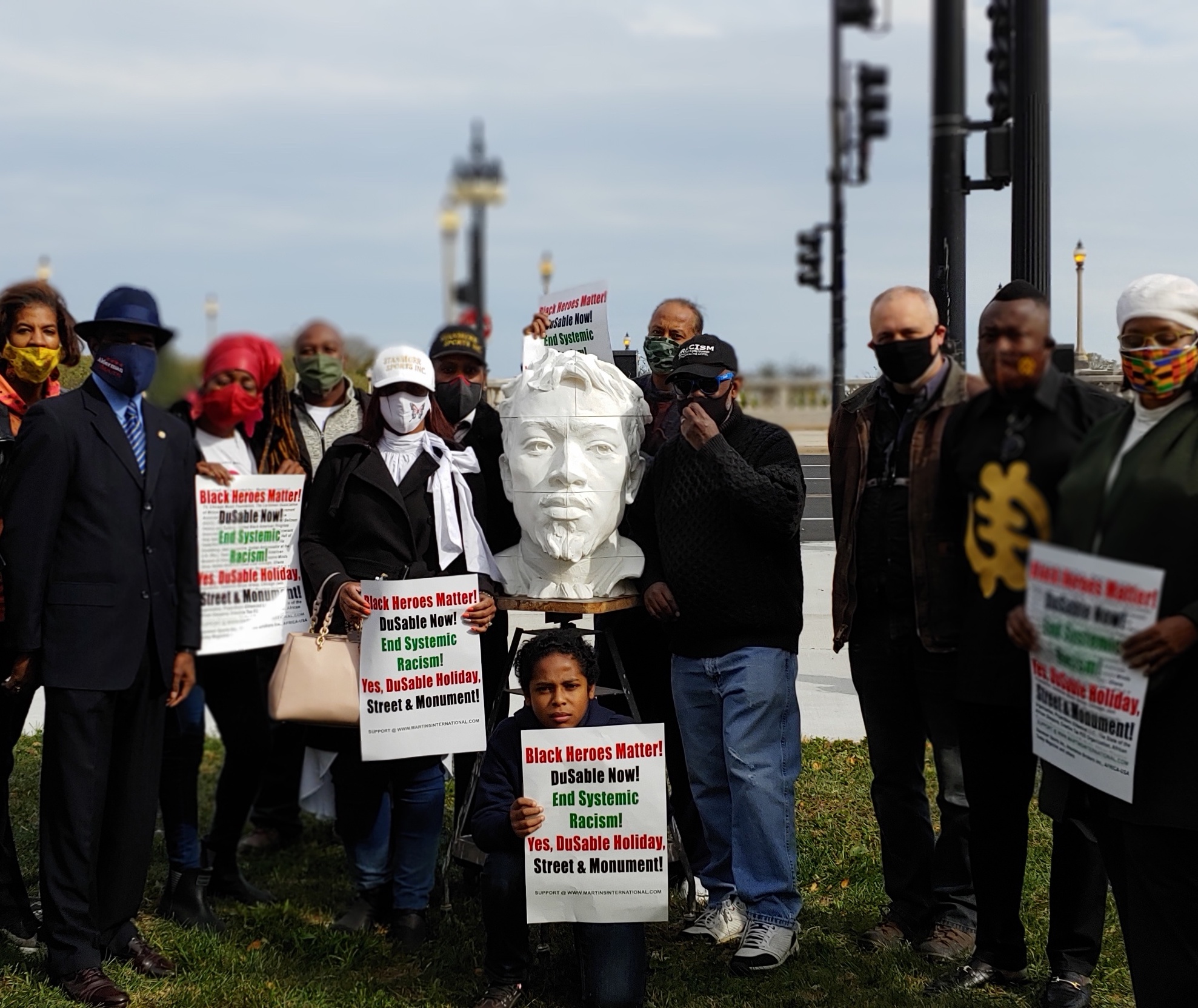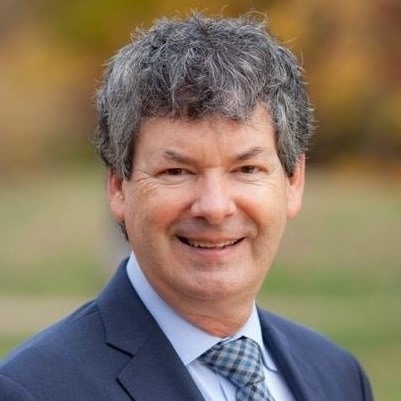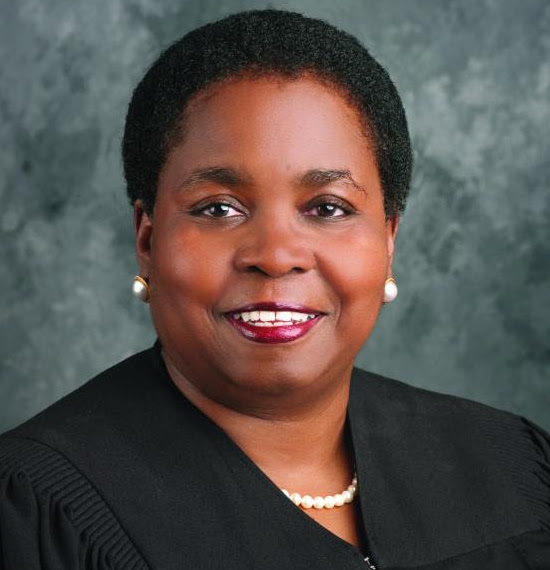After Mayor Lori Lightfoot and allied aldermen blocked a vote on renaming the outer lanes of Chicago's Lake Shore Drive for Black city founder Jean Baptiste Pointe du Sable last month, the advocacy group Black Heroes Matter says they're redoubling their efforts to get the ordinance passed. They're planning a rally on Wednesday, June 23, at 9 a.m. on the Randolph Street side of City Hall. That's shortly before a 10 a.m. City Council meeting where South Side alderman and Illinois Secretary of State candidate David Moore is likely to try to bring the legislation for a vote again.
A recent WGN News survey found that while 66 percent of white Chicago voters with an opinion on the issue are opposed to the name change, most of their counterparts of color support it, including 55 percent of Latinos, 57 percent of Asian-American / Pacific Islander individuals, and 61 percent of African Americans. In an online press conference yesterday, BHM used that new data as ammunition for their argument that a vote for DuSable Drive will be on the right side of history.
During the presser, Black Heroes Matter leader Ephraim Martin denounced the procedural move by Lightfoot, downtown alderman Brian Hopkins, and Northwest Side aldermen Ariel Reyboyras that killed the vote at the May 26 Council meeting. He argued that since residents have elected aldermen to represent their interests, City Council members should have been allowed to have their say on the issue.
In comments to WBEZ following the May Council meeting, Hopkins indicated that he helped block the vote because he's concerned about the name change causing inconvenience to his many constituents who live in high-rises on Lake Shore Drive. "It would have a profound impact to have your mailing address not reflect the road that you live on."
However, that's an inaccurate statement. Since the name change would only affect the outer lanes, people who currently live on the inner lanes would still have a Lake Shore Drive mailing address, and would continue to live on a road called Lake Shore Drive.
During the press conference, retired Illinois Appellate Court justice Shelvin Louise Marie Hall, chair of the political committee of BHM, laid out the group's current perspective on the DuSable Drive issue. "This coalition of some 80 Black Heroes Matter individuals and organizations has spent the better part of a year holding rallies, speaking at countless City Council committee meetings, meeting with the city administration and other organizations, and with the sponsoring alderman," she said. "We've called the mayor and the aldermen's offices, trying to get outer Lake Shore Drive renamed DuSable Drive."
Hall referred to the findings of the WGN survey. "It indicated that most Black, Latino, and Asian residents [with an opinion] are in favor of the name change, while most white residents were not. It is our hope that the continuing educational efforts that our coalition has made will help to bridge this gap, and [combat] the lie, spread by individuals and magazines, and papers on the North Side, that residents' home addresses will have to be changed."
Indicted Southwest Side alderman Ed Burke, who helped lead the racially-charged opposition to Chicago's Black mayor Harold Washington in the 1980s and was recently recorded by federal agents making anti-Jewish remarks, falsely argued in a December committee meeting that the name change would require thousands of Lake Shore Drive residents to change their addresses and documents. Ordinance sponsor Alderman Moore blasted that strategy as "fearmongering."
At the press conference Hall noted that outreach to "let people know that only four harbors will be affected, and that the name is only applicable to the outer drive, will assist in that effort to bridge this gap."
Hall added that, in addition to renaming Lake Shore Drive, BHM has long advocated for installing a 25-foot-tall-plus monument to him in Grant Park, and to create an official city holiday in his honor. "We are delighted that the mayoral administration has picked up our various streams recently and is now talking about one day taking new initiatives to honor DuSable, costing upwards of $40 million." Lightfoot's counterproposal to renaming the drive includes developing DuSable Park, renaming the Chicago Riverwalk for DuSable, launching an annual DuSable Festival, and installing three statues of the pioneer.
Hall noted that back in 1987 Mayor Washington announced that DuSable Park would be opened next to Navy Pier. "We are still waiting. Lake Shore Drive exists here and now." She added that officials have indicated that renaming the drive would cost a small fraction of Lightfoot's counterproposal. According to a preliminary analysis by the Chicago, Cook County, and Illinois transportation departments shared with aldermen last February, the name change, including expenses associated with changing signs and bus announcements, would cost "at least $853,500," WBEZ reported.
"Let's do the drive, and then the other changes proposed by the mayor," Hall said. "This and that, not this instead of that."
The former judge called the notion that changing the name of Lake Shore Drive to honor a Black man would hurt Chicago's brand a "sad, racist argument" that is "reflective of the very reason the name should be changed. Black is beautiful. DuSable Drive is beautiful... and marketable. The two should be merged and proclaimed to the world, that Chicago is proud of all of its heritage, especially the Black, Haitian heritage of its founding father, Jean Baptiste Pointe du Sable, and proudly wears his name as the crown of this magnificent city."
Hall urged attendees to call their aldermen and the mayor's office to urge them to vote yes for DuSable Drive on the 23rd.

This week, I've heard some pushback to the DuSable Drive proposal from people arguing that honoring the Black trading post operator, who appears to have been the region's first permanent resident, ignores the presence of Native Americans before him. They were unjustly driven out of the area by the white settlers who followed in DuSable's footsteps.
However, since the support of DuSable's Potawatomi wife Kitihawa (Jean Baptiste joined her tribe and learned its language) was surely a key factor in his success in building the homestead, that concern could be potentially be addressed by officially renaming the highway "Kitihawa and Jean Baptiste du Sable Drive." (The signs could just say "DuSable Drive.") Doing so would uplift the long-ignored fact that Chicago's founding parents were a Native-American woman, as well as her Black husband.








